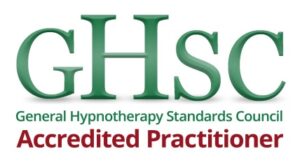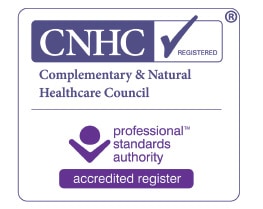Hypnotherapy FAQ
FAQ about hypnosis in general
What is hypnosis?
Hypnosis or trance is a completely natural state of being that we all slip in and out of many times a day, a state in which our busy, thinking mind takes a back seat for once. That blissful moment as you are just waking up or just before you fall asleep… the feeling of being so engrossed in a book, film or piece of music that you become oblivious to the world around you… the realisation on arriving at a familiar destination that you have no recollection of the journey you’ve just made… these are all forms of trance. It can be described as a state of profound relaxation combined with an acute awareness of, and focus on, specific sensory inputs.
What is hypnotherapy?
When we allow our logical, thinking mind to relax fully, the deeper, subconscious mind has the space to open up. Hypnotherapy is the process of teaching clients to enter this natural state of hypnotic trance whenever they choose to, and working with the open, subconscious mind to achieve real therapeutic change. During this process the sensory input on which the client is focused is the voice of the hypnotherapist.
The subconscious mind is incredibly powerful: much more powerful than the logical mind. Bypassing the critical part of the thinking mind (ie, that voice in your head that tends to rubbish unfamiliar ideas and experiences) increases the potential for the subconscious mind to accept new suggestions. Where appropriate, it also opens the way for deeper, analytical hypnotherapy, one of the most effective ways there is to understand and heal deep-seated emotional issues.
A skilled hypnotherapist develops a deep understanding of the beliefs and desires of each individual client, weaving together words, images and suggestions to create a personalised blueprint to help them move towards the life they want to live. Put simply, hypnotherapy is the process of training our imagination to work for us, rather than undermine us, in achieving our goals.
What issues can hypnotherapy help with?
It’s not always possible to change our circumstances and – whatever we like to think – we can’t change other people. We can, however, change our own patterns of thought and behaviour, and such changes can have a profound impact, not only on our own lives but also on those around us.
Hypnosis gives us direct access to our subconscious mind, effectively ‘turbo-charging’ the mind/body connection. This is why it can be so effective in helping manage chronic pain and/or health conditions and in preparing the body for successful surgery.
If you can imagine the outcome you want to achieve, hypnotherapy can help you make it happen.
- Let go of a fear, phobia or limiting belief that is holding you back
- Manage stress, reduce anxiety and overwhelm, and increase self-confidence
- Become a non-smoker, shed unwanted weight or other lifestyle upgrade
- Harness the power of creative thinking to manifest the life of your dreams
- Enhance revision skills and reduce exam nerves
- Overcome performance anxiety and maximise potential in any field of activity
- Identify and resolve deep-rooted psychological or emotional issues
- Manage pain and other physical symptoms associated with a range of health conditions including ME/CFS, fibromyalgia, migraine, IBS, skin conditions, etc.
- Prepare for and optimise the results of medical or dental procedures
- and much more
Will I be under your control?
Absolutely not!
Hypnosis is not something that I as the hypnotherapist ‘do to you’, rather it’s a skill I’m teaching you: the ability to (re)learn how to relax, to turn down the volume on your inner critic and to reconnect with the inner, subconscious mind that – without you even realising it – determines how you think and behave in any given situation.
When we remember how to rest our mind and body in this way, we make space – physically, mentally and emotionally. And where there’s space, there’s healing.
You are always in complete control throughout the entire experience. At any point, if you wanted to, you could open your eyes, stand up and leave the room. If you’re here in my consulting room, you could even get straight into your car and drive home with no ill effects! This means that it’s always your choice to remain in the chair, in the moment, doing the work – and this makes it far more powerful than anything I or anyone else could ever ‘do to you’.
Will I tell you all my deepest, darkest secrets?
Only if you choose to!
As a hypnotherapist, I can’t make you do anything you don’t want to do and I can’t make you believe anything that you are not already inclined to believe. I can, however, help you shine a light onto the reasons behind seemingly illogical patterns of thought or behaviour that are holding you back.
If you choose to do so, we can then work together to move beyond the past experiences or beliefs that have been dictating how you live your life. Leaving behind the things you no longer need in this way is the first step towards achieving your full potential.
Put other way, hypnotherapy can’t make you do anything, but it can help you do everything!
Is it possible to get 'stuck' in hypnosis?
No, this simply doesn’t happen.
As described at the top of this page, hypnosis or trance is a completely natural state of being that we all slip in and out of many times a day. You are no more likely to get ‘stuck’ in hypnosis than you are to get ‘stuck’ in a daydream or asleep.
This is the case whether you are working with a trained hypnotherapist or using a self-hypnosis recording.
When working with a hypnotherapist (whether in person or online), they will bring you back to full awareness, easily and gently, at the end of your session.
If you are using a self hypnosis recording, the voice of the hypnotherapist will count you back up to full awareness at the end of the audio. At this point you will either open your eyes or drift off into a deep natural sleep, depending on what is appropriate and what your body needs at the time.
Once you know how to take yourself into trance whenever you want to, you may even choose to do so through your own internal voice. (This is what I do, for example, when in the dentist’s chair). You do so safe in the knowledge that you can bring yourself back to full awareness at any time, simply by opening your eyes, or if appropriate you can let yourself drift off to sleep.
FAQ about working with me
What do I need to bring to a hypnotherapy session?
The most important thing you need is an open mind and a real desire to make changes in your life. Hypnotherapy is not a ‘magic wand’, but if you are truly ready for change it will dramatically increase the odds in your favour!
On a more practical note, after our initial exploratory consultation call (by phone or Zoom) I will send you a Client Information Form to complete before your first appointment. Many clients find this a helpful way to focus their mind on exactly what they are hoping to achieve. It also allows us to keep the time we spend on admin during your session to a minimum.
What happens in a hypnotherapy session?
Our first session is an opportunity for me to learn a bit about you and for you to learn a bit about hypnotherapy.
You can ask any questions you may have about hypnosis and tell me what you want to achieve. We can start setting realistic goals for our work together and, unless we agree otherwise, you will have the opportunity to experience the deep relaxation of hypnotic trance. After our session I will send you a relaxation recording so you can practice taking yourself into this pleasant state whenever you choose to.
If we both agree that it would be helpful, in subsequent sessions we will explore the issues that have brought you to see me (and/or anything else that has come up) in more depth and I may prepare a bespoke recording for you to work with at home.
Listening to these recordings, along with any other ‘homework’ I may ask you to do, is a key aspect of the therapy and part of your commitment to the process. In some cases, and with your agreement, we may adopt a deeper, more analytical approach in order to bring clarity to the issues you wish to resolve and help move them forward.
How many sessions will I need?
For many clients, a handful of sessions, combined with regular use of a personalised hypnotherapy recording, can have life-changing results. Others may feel that they have all they need after a couple of sessions.
Some people find they prefer to work with me more slowly over a longer period of time, while others come back whenever they feel in need of a little extra support. It’s not unusual for clients who have successfully resolved one issue to choose to continue working with me to make changes in other areas of their life, either straight away or some time down the line. (Full disclosure: this is what I did myself when I first discovered the life-changing power of hypnotherapy as a client!)
Over the years I have found that, for most clients, four sessions is a good starting point. For this reason, I offer a four-session package at a slightly reduced per-session rate.
Ultimately I’m here to support you in whatever way feels right for you, whether that turns out to be a single session, an ongoing therapeutic relationship or something in between. Whatever you decide, I am committed to helping you to achieve optimum results in the shortest possible time and at the lowest possible cost.
When, where and how much?
If you are interested in exploring how hypnotherapy can help you make the changes you want to make, there are a few options:
- A standard session online via Zoom or in my dedicated consulting room in Petersfield, Hampshire lasts about 90 minutes and costs £150.
- I find that for most clients, 4 sessions is a good starting point, so I also offer a 4-session package at a slightly lower per-session rate.
- If we agree that it is therapeutically appropriate for me to attend a dental or hospital appointment with you, this will be charged at £160 per hour, plus travel and agreed expenses.
- If you are ready to become a non-smoker, experience shows that a single, transformative session is the most effective solution, in person if possible. My Becoming a non-smoker super session is based on the approach that famously helped Eric Clapton stop smoking. It lasts up to 2 hours and costs £450.
Will you be present during my surgery?
In certain circumstances we may agree that it is therapeutically appropriate for me to support you in person during a dental or surgical procedure (with the agreement of your clinical care team).
Such in-person support is only available as part of an ongoing therapeutic relationship. If this is something you wish to explore, book a call with me at least 6 weeks before the planned procedure and we’ll discuss options.
What are your qualifications?
6I completed my initial, in-person 200-hour hypnotherapy training between October 2014 and May 2015, going on to be awarded my Diploma after extensive clinical experience, supervision and examinations. I am a member of the General Hypnotherapy Register (GHR) and accredited by both the General Hypnotherapy Standards Council (GHSC) and the Complementary & Natural Healthcare Council (CNHC).
I continue to deepen and update my knowledge and skills through CPD training (included, but not limited to, the courses listed below) and regular peer supervision.
- 200 hour Diploma in Clinical, Analytical & Medical Hypnotherapy, Hypnotherapy Training InternationalᅠPrincipal instructor: Dr John Butler
- Attended and assisted on the inaugural 1-year Accredited Hypnotherapy Program, Academy for HypnosisᅠPrincipal instructor:ᅠSharon Waxkirsh
Guest instructors included: Katherine Zimmerman, Charles Montagu, Michael Mezmer, Liza Boubari, Professor Ted Kaptchuk and others - Smoking Cessation Masterclass with Charles Montagu
- Dave Elman Hypnosis Methods with Col. H. Larry Elman CH, CI, CMT and Cheryl J Elman CH, CMT, Dave Elman Hypnosis Institute (12 hours)
- The Practical use of Hypnosis in Medical and Dental settings with Sharon Waxkirsh (Director, Academy for Hypnosis and co-founder of the Institute of Hypnotherapy for Medical and Dental Practice) and Dr Brice Lemaire PhD, Dental surgeon and hypnotherapist (15 hours)
- The History of Hypnotic Inductions – with Sharon Waxkirsh and Dr Brice Lemaire PhDᅠ(8 hours)
- Essential Therapeutic Relationship Skills with Sharon Waxkirsh and Brian Ackie (CIPD learning specialist, hypnotherapist, Gestalt counsellor) (8 hours)
- The Consultation, The Swan & Master of Influence – with Bob Burns (clinical hypnotherapist and creator of The Swan) (7 hours)



